Archive for the ‘Song Dynasty’ Category
2月 27, 2024
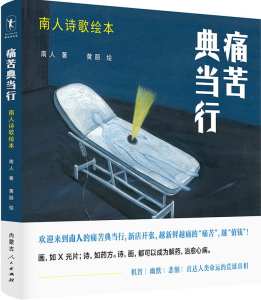
Dear poetry fans,
On Febr. 10, the Frankfurter Allgemeine Zeitung published my article on the poet Nan Ren 南人 (scroll to p. 5; there are a few minor mistakes in the German article, I couldn’t see the final print version before it came out: the first poem has one line added; and Shaanxi became Shanxi). Last week I decided to write a version in English for the MCLC Resource Center.
This is a newspaper article, so there are no footnotes. The reference to Maghiel van Crevel was not included in the German print version. I have thought about many names of poets I should have mentioned, and other things I should have said. Anyway, such a publication in a major daily in Germany is a big success, a big deal in international exposure for current Chinese poetry. I hope you like it. Please comment, thank you!
Sources: Here is a link to the poems in the article including the original Chinese versions. And here are some of the paintings by Huang Li 黄丽 that accompany the poems in the book. The pictures look much better in the book. Nan Ren has sent them to me in high resolution. He and Xiron have authorized me to look for publishers in Europe and beyond. I hope to find publishers for the German speaking and for the English speaking Pawnshop. Here is a link to about 50 poems in Chinese with some translations in English or German. Here is a link to the announcement from last May, when the book was published in China. The publisher is Xiron Poetry Club, 磨铁读诗会. Xiron is a big publisher, led by the poet Shen Haobo 沈浩波. But Xiron is private and has to purchase an ISBN for each book from a state publisher. The state publisher is on the cover, Xiron Poetry Club is on the first page. Both have to avoid publishing anything that could get the book pulled or forbidden.
IN A PAWNSHOP OF PAIN
Nan Ren is a legend. He doesn’t like to say when he was born. 1970, found that somewhere. Not important. Nan Ren is a pen name. The nán of ‘south‘ and the rén of ‘person‘. What does that mean? His family comes from the south, somewhere south of the Long River, the Yangtse. Nanren, southern people, was the lowest stratum in the Mongol empire. The Mongols captured the south last, all the better jobs had been assigned to other people already. Almost every poet writing in Chinese has a pen name. People have more than one name in Chinese, even non-artists. It was that way in Confucius‘ times. And in the occident, people also had several names, at least prominent people, all the way from Homer.
More …
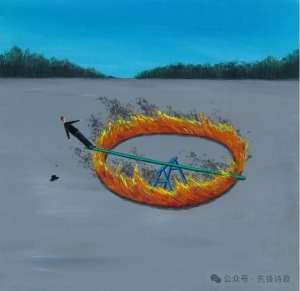
标签:beijing, book, books, censorship, 磨铁, 磨铁读诗会, Democracy Wall, disease, Europe, 西毒何殇, Fang Miaohong, FAZ, frankfurt, Germany, history, internet, Maghiel van Crevel, MCLC, media, memory, name, names, Nan Ren, newspaper, opera, pandemic, people, poetry, publishing, reality, self censorship, Shen Haobo, singing, society, time, wall, walls, writing, Xi'an, Xidu Heshang, Zhu Jian, 南人, 尹丽川, 方妙红, 朱剑, 椿树, 沈浩波
发表在 11th century, 13th century, 14th century, 15th century, 16th century, 17th century, 18th century, 1900s, 1910s, 1920s, 1930s, 1940s, 1950s, 1960s, 1970s, 1980s, 1990s, 19th century, 2000s, 2010s, 2020s, 2023, 2024, 20th century, 21st century, April 2023, February 2024, May 2023, Middle Ages, poetry, Song Dynasty, Translations | Leave a Comment »
11月 29, 2022

Xuanyuan Shike
CONTEMPORARY POEM
What ancient poets didn’t encounter,
we have encountered it.
What modern poets didn’t encounter,
we have encountered it.
What modernist poets didn’t encounter,
we have encountered it.
What poets of the future will never encounter,
we have encountered it.
What
have we encountered ?
2022-11-23
Translated by MW in November 2022
Xuanyuan Shike
AKTUELLES GEDICHT
Alten Dichtern ist es nicht begegnet,
aber uns ist es begegnet.
Neueren Dichtern ist es nicht begegnet,
aber uns ist es begegnet.
Modernen Dichtern ist es nicht begegnet,
aber uns ist es begegnet.
Dichtern der Zukunft wird es nicht begegnen,
aber uns ist es begegnet.
Was
ist uns begegnet?
2022-11-23
Übersetzt von MW im November 2022
当代诗一首
轩辕轼轲
古代诗人没遇到的
都让我们遇到了
近代诗人没遇到的
都让我们遇到了
现代诗人没遇到的
都让我们遇到了
未来诗人没遇到的
都让我们遇到了
我们遇到了
啥
2022-11-23
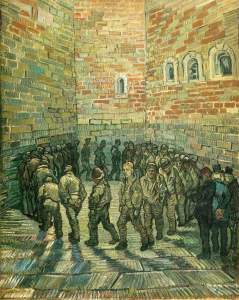
标签:encounter, 轩辕轼轲, future, life, lockdown, memory, past, people, phenomena, poetry, poets, politcs, society, thing, things, time, virus, Wang Youwei, Xidu Heshang, Xuanyuan Shike
发表在 11th century, 13th century, 14th century, 15th century, 16th century, 17th century, 18th century, 1900s, 1910s, 1920s, 1930s, 1940s, 1950s, 1960s, 1970s, 1980s, 1990s, 2000s, 2010s, 2020s, 2021, 2022, 2081, 20th century, 21st century, 22nd century, 5th century, 6th century, 7th century, 8th century, 9th century, Antique times, Middle Ages, November 2022, poetry, Prehistoric times, Qin Dynasty, Qing Dynasty, Song Dynasty, Stone Age, Tang Dynasty, Translations, Warring States, 朱剑 | Leave a Comment »
8月 30, 2022

Yi Sha
FAMILIENFEIER
Der erste Todestag meines Vaters ist da.
Früher hatten wir Essen zusammen,
jetzt brennen drei Räucherstäbchen.
Wie geht es Dir, Vater, dort drüben?
Bei Familienfeiern sagt es dem Alten.
Was kann ich Dir sagen zum Trost?
Oh, mein “Li Bai” ist schon gedruckt!
Der das hinterlassen hat mit der Feier,
über den mach ich auch noch ein Buch.
Übersetzt von MW im August 2022
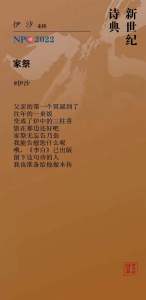
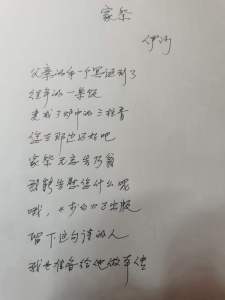
伊沙:父子情+家国情,在写作上还有一大高明:诗的契机本来是个时事话题,就是最近的台海风云,诗中却一个字没有提及,全都藏在了海面以下,现代诗当然与海明威的冰山原则相合,在时事乱如麻的诗写中,干得实在漂亮,又做了一次表率!当获8月下半月冠军。
况禹点评《新诗典》伊沙《家祭》:这是一位诗人的家祭文字,在今天,在汉语,也只有它最好的诗人,才能写下这么单纯、挚诚的文字。继续!
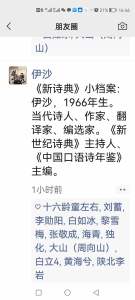
标签:afterlife, book, books, ceremony, communication, death, 陆游, family, father, food, history, Li Bai, Lu You, memory, NPC, people, society, son, state, yi sha, 新世纪詩典, 李白, 伊沙
发表在 1930s, 1940s, 1950s, 1960s, 1970s, 1980s, 1989, 1990s, 2000s, 2010s, 2020s, 2021, 2022, 20th century, 21st century, August 2022, Middle Ages, NPC, poetry, Song Dynasty, Translations, Yi Sha, 新世纪诗典, 伊沙 | Leave a Comment »
2月 19, 2022

You Ruoxin
EDGE OF HISTORY
My desk neighbor,
to get ahead of me next term
at the history exams,
bought a roll of toilet paper on Taobao,
printed with the main points of history.
One day when she didn’t pay attention,
I ripped off a square
and ran to the bathroom.
Just when I returned to class,
she who would never leave the room,
flew at me, chasing me
all through the corridor.
1/21/22
Tr. MW in February 2022

 新世纪诗典11,女诗人小辑之五,NPC2022年2月20日,3975首,1241人。第26个游若昕(福建)日
新世纪诗典11,女诗人小辑之五,NPC2022年2月20日,3975首,1241人。第26个游若昕(福建)日
《新诗典》小档案:游若昕,女,2006年出生,2012年开始诗歌创作。现就读于福建省宁德市高级中学。曾获第四届李白诗歌奖入围奖(2015)、第七届李白诗歌奖金诗奖(2018年),2021年获评《新世纪诗典》新世纪中国十大女诗人。系中国口语诗年鉴编委。在《诗歌月刊》《作品》《诗潮》《青春》《读诗》《边缘艺术》《雨露风》《鹿鸣》《新大陆诗刊》等海内外刊物发表诗作,作品被译成英语、德语、韩语、日语、阿拉伯语、西班牙语、俄语等。
伊沙推荐:游若昕是《新诗典》所推出的最有才华、实力与成就的少年诗人,随着年龄的增长,她不可避免地来到了蜕变期。在诗上给人的印象:感觉上的新鲜感少了,知性在增强,但还远远没有多到能够制造新的新鲜,这个蜕变期一定不会在短时期结束,甚至会带来困惑与痛苦一一这一切我都经历过,我的建议是在以学习为主的正常生活中自然解决问题,学习最忙(譬如高考之年)时可以暂停写诗。
况禹点评《新诗典》游若昕《历史的一角》:有喜感。喜感背后起支撑的,仍是我们熟悉的内地学校教育所特有的气息。只是这次镜头太近,已近乎“偷拍”——这就是“诗人卧底”所带来的效果。本诗属于纯写实,与作者以往那种想象力跳脱式的写法不太一样,但游若昕就是游若昕,即便写实也还是比旁人多出不少生趣来。
黎雪梅读《新世纪诗典》之游若昕《历史的一角》: 这是若昕版《同桌的你》,虽写的是求学的日常,细细品味,却别有一番滋味在心头,它不是一般的酸甜苦辣,有着青苹果的清甜与纯净;满是纯真无邪的少年情怀与深挚的同窗之情,也许若干年后回想起来嘴角依然会微微上扬。这样的记录不仅仅是当年的情景再现,更是自己一段青春岁月与生命情感的密码,在漫漫的人生长河中的尤显得弥足珍贵。
标签:bathroom, class, classroom, exams, girls, history, memory, NPC, paper, people, pupils, running, school, students, toilet, You Ruoxin, 新世纪詩典, 游若昕
发表在 1880s, 1890s, 18th century, 1900s, 1910s, 1920s, 1930s, 1940s, 1950s, 1960s, 1970s, 1980s, 1989, 1990s, 19th century, 2000s, 2006, 2010s, 2020s, 2022, 20th century, 21st century, Antique times, February 2022, First Emperor, Han dynasty, January 2022, Middle Ages, NPC, Old Egypt, Persia, poetry, Prehistoric times, Qin Dynasty, Qing Dynasty, Roman times, Song Dynasty, Stone Age, Tang Dynasty, Translations, Warring States, 新世纪诗典, 游若昕 | Leave a Comment »
12月 8, 2021

Zhang Xiaoyun
FAHNENSTANGE
Vor dem Familientempel der Chen stehen 8 Fahnenstangen.
Jede Fahnenstange wird an beiden Seiten von Steinen gehalten.
Auf den Steinen stehen die Absolventen der Palastprüfungen von der Song- bis zur Qing-Dynastie.
Auf dem Platz davor liegen 6 abgezogene Föhrenstämme.
Bürgermeister Chen sagt, manche Stangen müssen ersetzt werden.
Ich frage, was ist, wenn jetzt jemand aus der Familie
seinen Doktor macht und so weiter, kriegt er vielleicht eine Stange?
Der Bürgermeister schüttelt den Kopf.
Aber er fügt gleich hinzu, bei der letzten Renovierung vor über zehn Jahren
haben die Ältesten sich besprochen,
falls ein Nachfahre
etwas Höheres wird als Vize-Kreisvorstand,
dann kann man schon darüber beraten.
2021-10-28
Übersetzt von MW im Dezember 2021

 伊沙推荐:这个地方,在福建漳州,我也到访过,不曾写成诗,关键在于:当时无从了解当代情况,所以无缘古今嫁接擦出火花,也就无诗而归。时隔多年,读小云兄诗,受教了!
伊沙推荐:这个地方,在福建漳州,我也到访过,不曾写成诗,关键在于:当时无从了解当代情况,所以无缘古今嫁接擦出火花,也就无诗而归。时隔多年,读小云兄诗,受教了!
高歌:那些断裂的,未延续下来的,是太厚古拘泥,还是不同时代的价值观对接不上呢?不过,做官在此间倒是亘古不变地被尊重被推崇……
况禹点评《新诗典》张小云《旗杆》:张小云的诗里有一路,属于“有滋有味的当代风俗画”,之前已经领略过他笔下的北京现代市井,这一首又把我们带到了福建漳州。至于博士博士后没有过去的进士在老人处获凭高(这一点我很赞同),副县长以上却又评官威胜出(其实也不算太错,因为古代相当多县令都是进士出身,当代的副县长好赖也算个县丞罢),这都不过是顺笔一带的,也正因不刻意,反倒显出了机锋。
黎雪梅读《新世纪诗典》之张小云《旗杆》:“学而优则仕”的观念对国人有着非常广泛而深远的影响,历来是中国知识分子毕生的追求的目标,因为只要达到了这个目标,活着的时候不仅可以光宗耀祖,受人尊敬与崇拜,死了之后还可以在祠堂立牌位,受后人供奉祭祀。这一点至今并没有发生根本的变化,如诗中所写“如果哪位后生当到副县长以上/就可以研究为他立杆”,这仍然是对权力尊崇与膜拜,哪怕是读到博士与博士后也不能网开一面。一根旗杆横贯古今,细致入微地景观描摹,让我们能感受到陈氏宗祠悠久的历史与文化,在其中还有荣耀、有传统,还有根深蒂固的家族观念及国人的心理意识,教科书级别地呈现,令人思接千载,不胜感慨唏嘘。
晏非跟读《新世纪诗典》| 2021.12.8诗人张小云《旗杆》
立旗杆表彰优秀之士,本无可厚非,奈何历朝历代说到底就是官本位,当了官才算优秀人才,当了大官才是栋梁之材,才能光宗耀祖,其他的技能都只是等而下之,或者奇技淫巧。我们在那些枯黄的地方志书中,能够连篇累牍地看到这种糟朽的记载。这种现状到了近代以降,在华夏大地是否有了实质性改观,本诗可作一个样本考察,读到博士博士后的明确不能立旗杆旌表,而“如果哪位后生当到副县长以上/就可以研究为他立杆”,官本主义的现实仍未真正破局,未来的路还会很艰辛。需要指出的是,以前的进士好歹都可称学富多车,学而优则仕能够理解,而今官场所见所闻,可称得上怪现状,既看不到进之学识,亦看不到士之风采。
马金山|读张小云的诗《旗杆》的十一条:
1、很多时候,把事物写清楚,就是诗;
2、写作的目的首先是表达情感,表现事物,然后让已经死的东西,再重新的活过来,并且充满活力;
3、张小云,1965年生于厦门,走过第三代诗歌年代,倡行过荒诞与类型实验写作。著有诗集《我去过冬天》、《够不着》、《现代汉语读本》、《北京类型》、《买菜哪MyChina》、《一路畅通》等。2019年1月获亚洲诗人奖,2020年6月获李白诗歌奖特别奖;
4、至今为止,也见过居士两面,一次是2017年冒着台风参加的惠州诗会上,另一次是今年六月份的绵阳诗会上,其在沉静中,依然给人以朴实而温暖的感觉,这就是诗人无形的通感;
5、张小云的诗,荒诞之中,充盈着禅性的意蕴,含厚中显现出独特的精神内涵,既有口语化的质感,还有现代化的生活记录,却总有一种陌生化的力量深藏其中,让人回味悠长;
6、诗以镜头式的布局,一步步引向深入,透过现象,书写独具特色的传统文化,并在此基础上,将古今的门第观念,予以融汇贯通,细致入微,而又深刻透彻;
7、诗中不紧不慢的陈述,具体到一个明确的区域,位置,以及宗祠上面,从而形成了鲜明的时代背景和历史纵深,并由旗杆融为一体,不仅是精神的,更是信仰的;
8、不在于文化程度的高低,而在于官位的大小,这是从古至今一直以来,人的价值观现实一面的真实写照,还是根深蒂固的思想体系;
9、诗的标题《旗杆》,在本诗中带有信仰的东西,而且让人深刻地感受到宗教事务的高级文化,并自带典型的意识与力量,又颇有代表性;
10、本诗给予诗人的启示:“诗的呈现,是一切事物的力量”;
11、信仰之诗、观念之诗、文明之诗。
标签:examination, exams, family, flags, generations, history, memory, names, people, stele, stone, temple, tradition, Zhang Xiaoyun, 张小云, 張小云, 新世纪詩典
发表在 11th century, 13th century, 14th century, 15th century, 16th century, 17th century, 1960s, 1965, 1970s, 1980s, 1990s, 19th century, 2000s, 2010s, 2020, 2021, 20th century, 21st century, 9th century, Antique times, December 2021, Middle Ages, NPC, October 2021, poetry, Qing Dynasty, Song Dynasty, Translations, 新世纪诗典 | Leave a Comment »
9月 22, 2021

Su Shi (auch Su Dongpo, 1037 – 1101,Song-Dynastie)
Melodie: Shui Diao Ge Tou
wann kommt denn der mond? ich trink untertags. im palast am himmel, heut nacht, welches jahr?
ich nähm den wind hinauf, fürcht nur die jade dort – so hoch, viel zu kalt. dann tanz, schatten weicht, nicht bei menschen halt!
roter turm, fenster tief und kein schlaf. wieso der hass, zum abschied erst wird er voll? menschenwelt, freud und leid, mond hat auch seine zeit. es hat nie gepasst. mögen wir leben, die frau im mond sehn!
1076
Übersetzt von MW am 20. September 2021
水调歌头·明月几时有
苏轼 〔宋代〕
丙辰中秋,欢饮达旦,大醉,作此篇,兼怀子由。
明月几时有?把酒问青天。不知天上宫阙,今夕是何年。我欲乘风归去,又恐琼楼玉宇,高处不胜寒。起舞弄清影,何似在人间。(何似 一作:何时;又恐 一作:惟 / 唯恐)
转朱阁,低绮户,照无眠。不应有恨,何事长向别时圆?人有悲欢离合,月有阴晴圆缺,此事古难全。但愿人长久,千里共婵娟。(长向 一作:偏向)





picture by Huang Kaibing
标签:drinking, 苏轼, festival, holiday, holidays, life, meeting, Mid-Autumn, moon, NPC, online, people, poetry, reading, Su Shi, translation, Xi'an
发表在 11th century, 2020, 2021, 20th century, 21st century, April 2020, April 2021, OCTOBER 2020, poetry, September 2020, September 2021, Song Dynasty, Translations, Yi Sha, 新世纪诗典, 伊沙 | Leave a Comment »



















